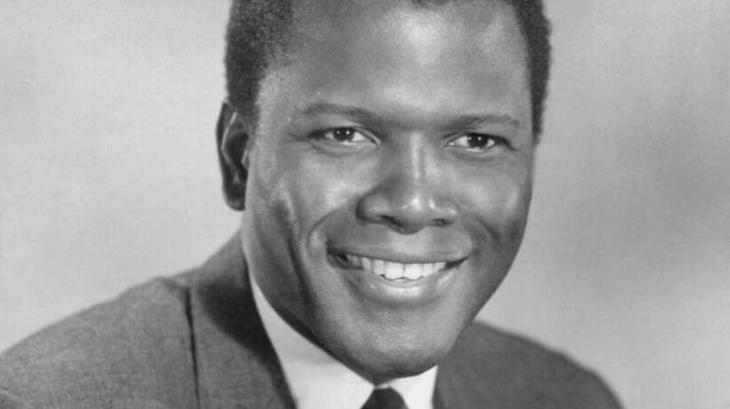
Sidney Poitier wasnât just an actor, he was an activist and humanitarian who successfully, and almost single-handedly, normalized the very idea of a black face in a lead role.Â
The passing of Sidney Poitier this week, aged 94, has served as a reminder of what one man can help achieve. As the first black man to win an Academy Award in the best actor category, Poitier is renowned as atrailblazingBlack Hollywood A-lister who will be remembered not only for this acting but also as an activist and humanitarian. Poitier, the son of Bahamian tomato farmers, also served as a diplomat as the Bahamian ambassador to Japan from 1997-2007.

His home nation were the first to pay tribute following his death in his Los Angeles home. An announcement by the Bahamian governmentâsDeputy Prime Minister Chester Cooper hailed Poitier for his vision, determination and struggle saying he âdid so much to show the world that those from the humblest beginnings can change the worldâ.
Sidney Poitier was born prematurely on February 20, 1927, in Miami, Florida, while his parents were on a trip to the US selling their farm-grown tomatoes. His unexpected early arrival meant that he gained US and Bahamian citizenship.


Poitier was a trailblazer for generations of black actors and through his pioneering thousands, nay, millions now believe that any role is possible, be it TV, Hollywood, West End, Vegas or Broadway. Despite his genius, Poitier admitted in his later years that he was conscious of the part tokenism had in his success within the Hollywood machine. However, he is widely hailed as the actor who successfully, and almost single-handedly, normalised the very idea of a black face in a lead role.


Rising to prominence in the 1950s and '60s in films that frequently dealt with thorny topics such as segregation and mixed-race marriage, Poitier reinvented himself in the '70s as a director of comedies including Stir Crazy and Uptown Saturday Night as the civil rights movement became increasingly confrontational.Bridging these types of gaps â between black and white audiences, authority and rebellion, and social commentary and knockabout comedy - was a impressive skill that wasunusual in an era when blacks were rarely portrayed with a variety of positive images. His own story is not without prejudice. After spells in Atlanta and the US military, by 1945 Poitier was living in New York, where he unsuccessfully auditioned for the American Negro Theatre. The theatreâs co-director, Frederick OâNeal, said he could neither read nor speak his lines and told him to find work as a dishwasher. He did just that, and with the help of a friendly old waiter, copies of The New York Times, and a trusty radio, he learnt both to read and to soften his Bahamian accent.

His next audition for the theatre group was successful, and while serving as understudy to Harry Belafonte he was spotted by another Broadway director and cast in an all-black production of the Greek drama Lysistrata.The minstrel roles were still offered to him - but he was tone-deaf and could not sing so was spared the all-singing, all-dancing black cliché. Poitier, however, recalled in interviews that it was only after he went to live with his brother in Miami, aged 15, thathe encounter blatant racism for the very first time.
In 1949, he made the decision to become a film actor. His performance in the 1950 film No Way Out, in which he played a newly-qualified doctor confronted by a racist patient, brought him to the attention of the studios and his breakthrough came in Blackboard Jungle in 1955, in the role of a disruptive pupil in an inner-city school. This film was one of the first to feature a rockânâroll soundtrack, courtesy of Bill Haleyâs Rock Around the Clock.
Poitier was vocal in opposing authority when he saw it perpetuating injustice. He was widely decorated, receiving both a knighthood from Britain's Queen Elizabeth II in 1974, thanks to his roots in the formerly British Bahamas, and a Presidential Medal of Freedom from former US president Barack Obama in 2009.
In 1963, after a succession of nominations, Poitier picked up an Oscar for his role as an itinerant handyman who helped a group of nuns build a church in the Arizona desert in Lilies of the Field. A golden era followed with a career-high in 1967, when three hit films made him Hollywoodâs most bankable star - British hit To Sir, with Love; Norman Jewisonâs classic mystery In the Heat of the Night; and the comedy Guess Whoâs Coming to Dinner, one of the first Hollywood films to feature interracial marriage at a time whenit was still illegal in 17 US states.
In the 1970s, Poitier abandoned acting in favour of his directorial work for almost two decades. But following his final film as director, 1990âs Ghost Dad, he returned to screens in a number of lower-profile, but critically acclaimed roles, such as in the 1996 sequel To Sir, with Love II and the 1997 biopic Mandela and de Klerk. Â
Mr. Poitier is survived by his wife Joanna Shimkus, and five of his six daughters. His daughter Gina died in 2008.






